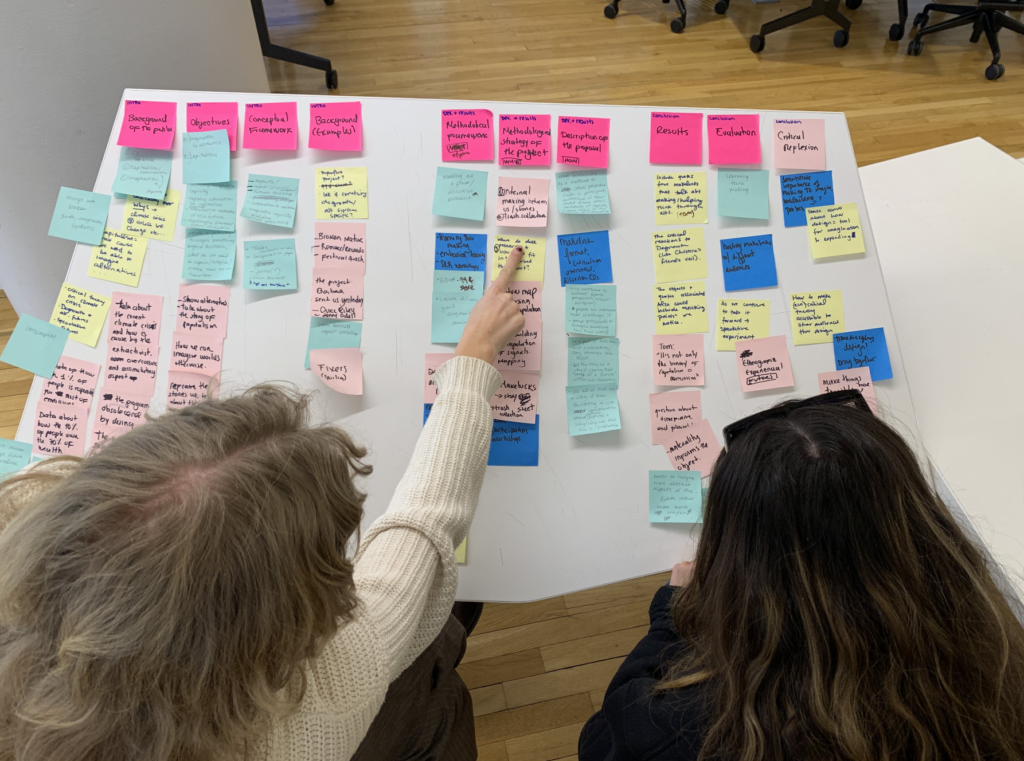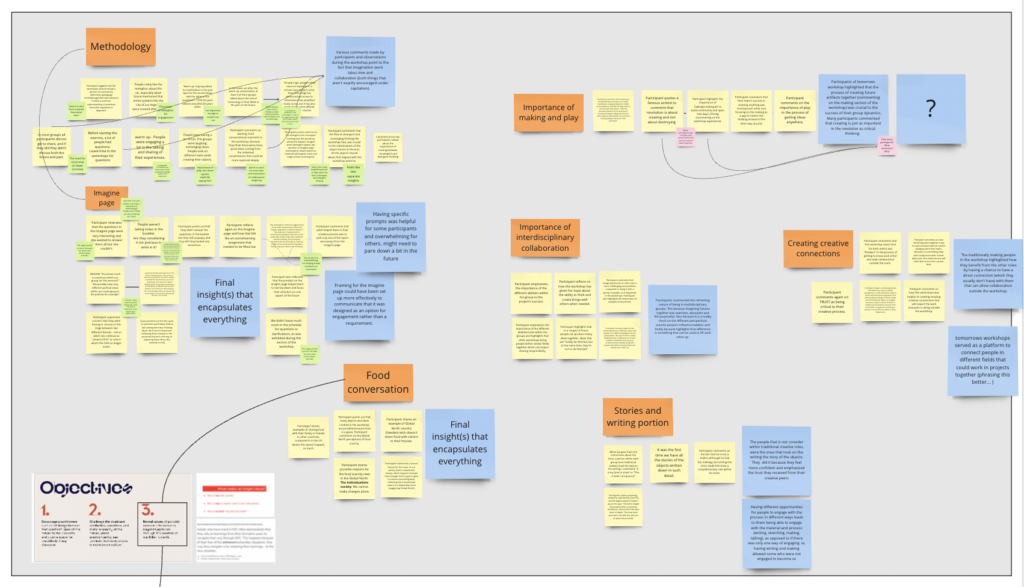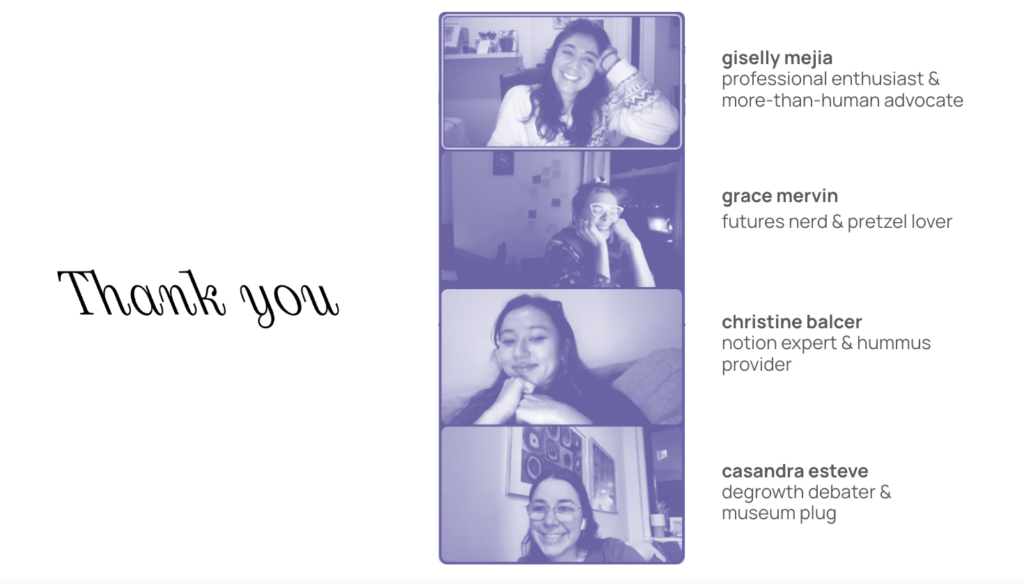Partners: Brooklyn Museum, Degrowth NYC Collective,
Timeline: September 2022 to May 2023 (8 months).
Approach: Speculative Design, Experiential Futures Design, Design Fiction.
Topics: Post-growth, Climate Crises, Economics, Creative Reuse, Climate Activism.
Team: Christine Balcer, Grace Mervin, Casandra Esteve and Giselly Mejia.
My role: Researcher, Facilitator, Imaginer, Data analyst, Illustrator, and future enthusiast.
Making Tomorrows: Inquiries into Alternative Futures reckons with the climate crisis by applying a critical lens to the all-encompassing nature of capitalism that limits the ability to imagine futures beyond its structure. Borrowing from the fields of speculative design, economics, and climate activism, this project uses interdisciplinary making, collaboration, and play to explore alternative futures focused on living within our planetary boundaries, positing that other worlds are in fact possible.
Objectives
1) encourage practitioners in and outside of design to move from abstract ideas of the future to the concrete and open a space for transdisciplinary discourse.
2) challenge the dominant aesthetics, narratives, and material quality of the future, which predominantly lean towards techno-dystopia in mainstream culture.
3) reveal values of speculative systems outside of dominant culture and futures through the creation of quotidian objects.
Outcomes
Tomorrows workshop
Tomorrows is centered around the following prompt: “Imagine it’s 2053 in New York City. The current socioeconomic system de-centers growth as a goal and instead focuses on meeting planetary and human needs. What does the city look and feel like now? What is the city grappling with?”
The last iteration of this workshop was held in the Brooklyn Museum as part of their educational programming within their sustainability pillar.
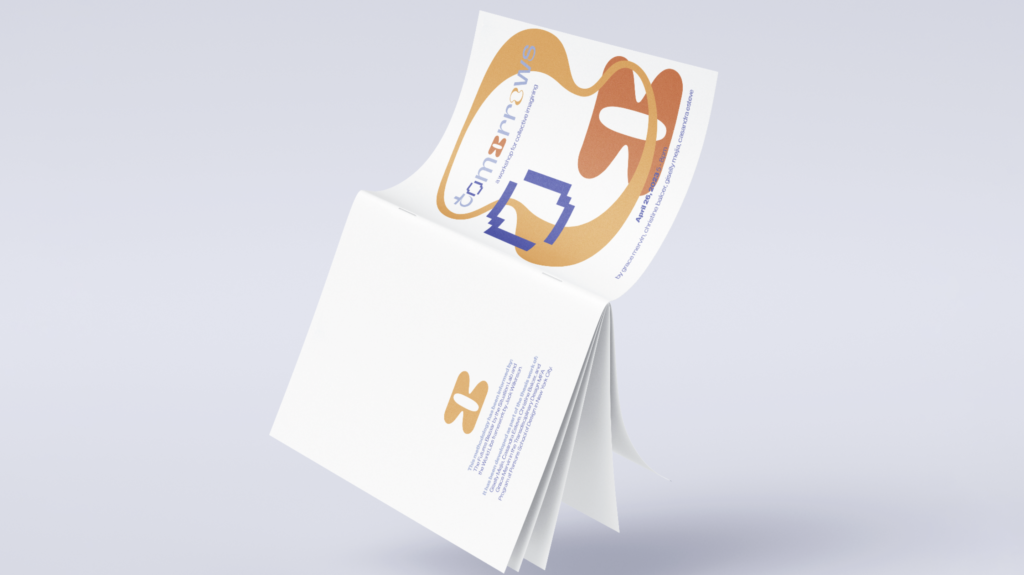
The workshop guides teams of three (combining theorists, practitioners, and makers working on environmental justice or climate-related work) through a workbook containing a series of exercises that enable participants to imagine futures beyond capitalism.
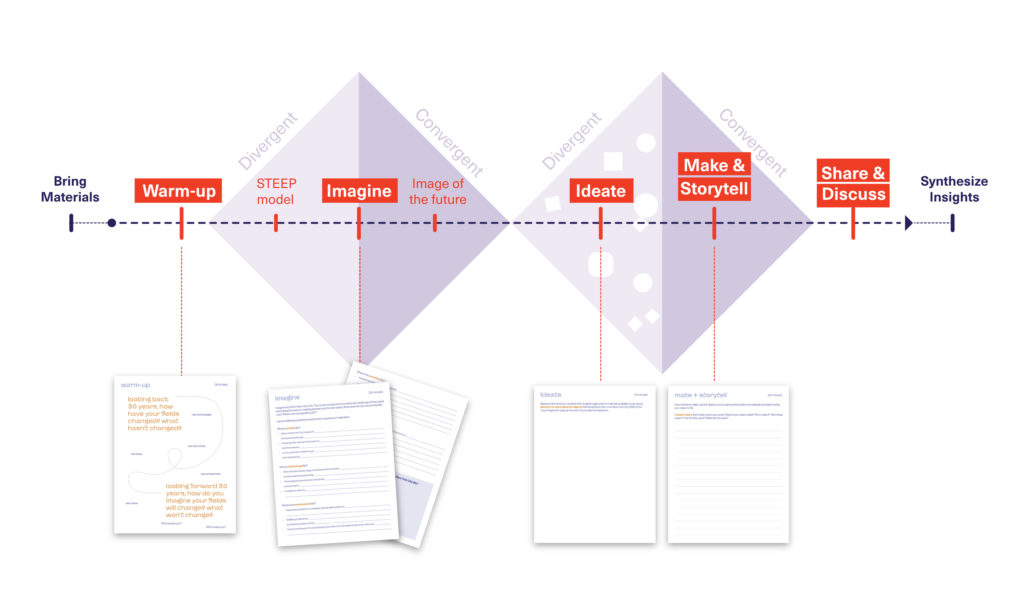
Tomorrows centers its methodology around play and learning through making coupled with alternative economic systems like Degrowth and Doughnut Economics. Participants not only get exposed to these concepts but also get to design and create speculative artifacts of 2053 NYC and the stories behind these objects. A performative share out of the final artifacts and a guided discussion at the end of the workshop allow participants to reflect on their cross-disciplinary process and discuss tangible pathways to more just futures.\
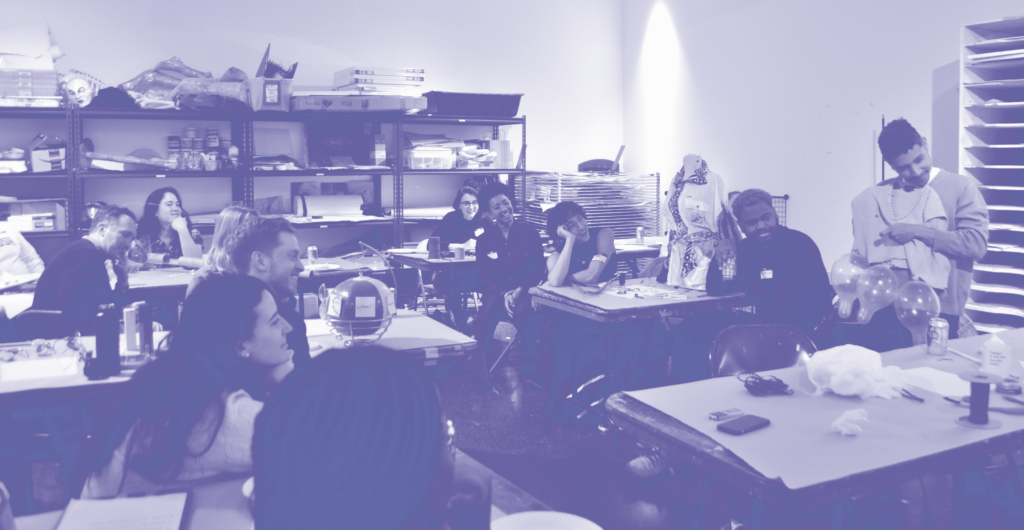
Speculative artifacts and their narratives
We hosted versions of this workshop with a total of 55 participants across 4 events that ended up with 30 objects and their stories. These objects present us with a future that moves beyond techno-dystopia to tomorrows centered around reuse, adaptability, food self-sufficiency, relationships of kinship with the more-than-human, locality, and community sharing.
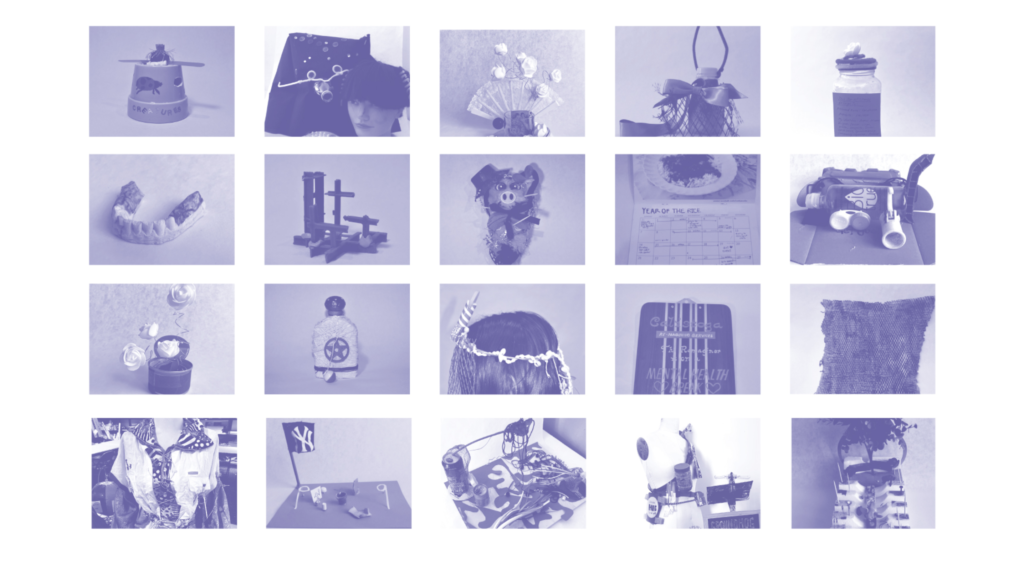
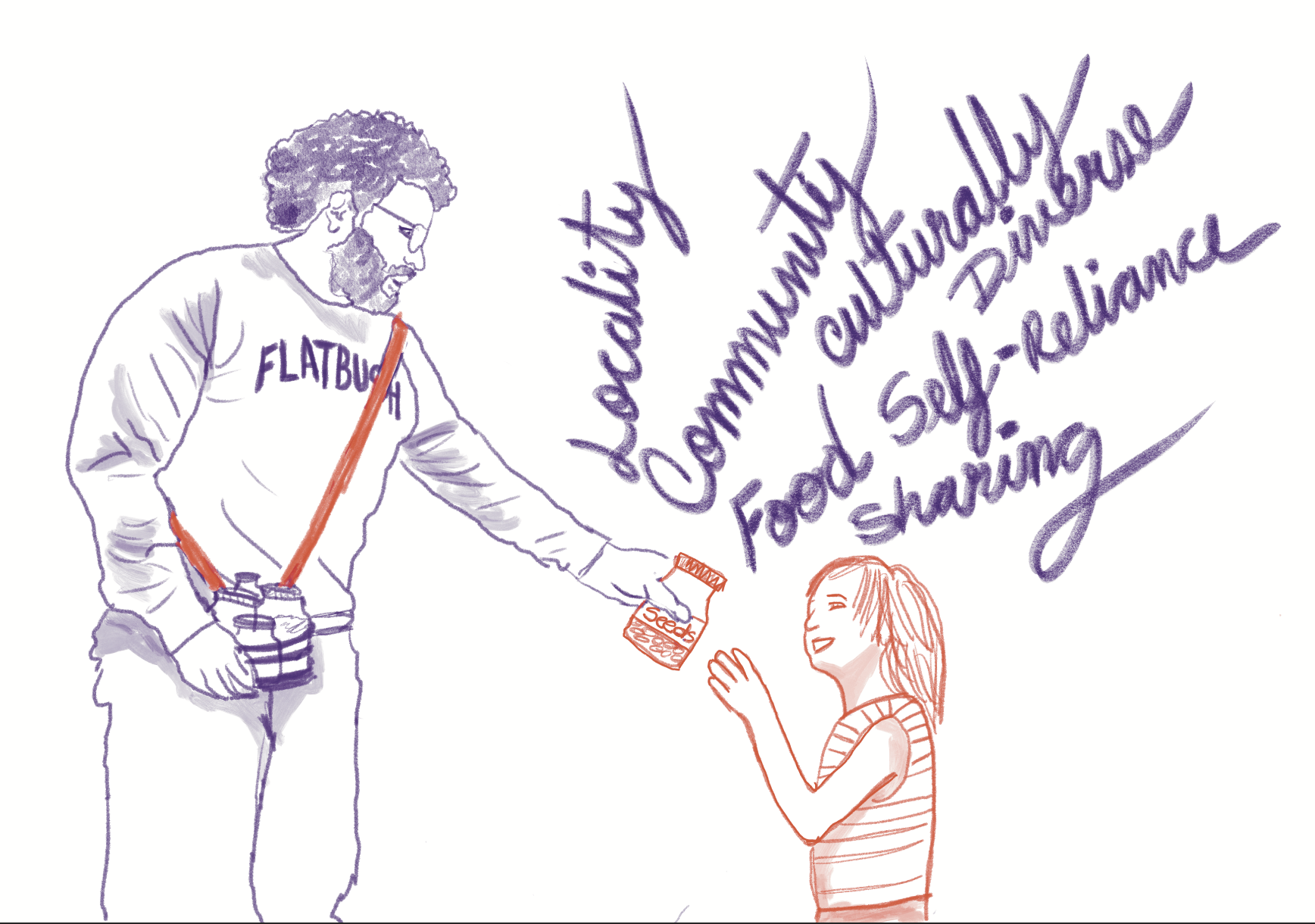
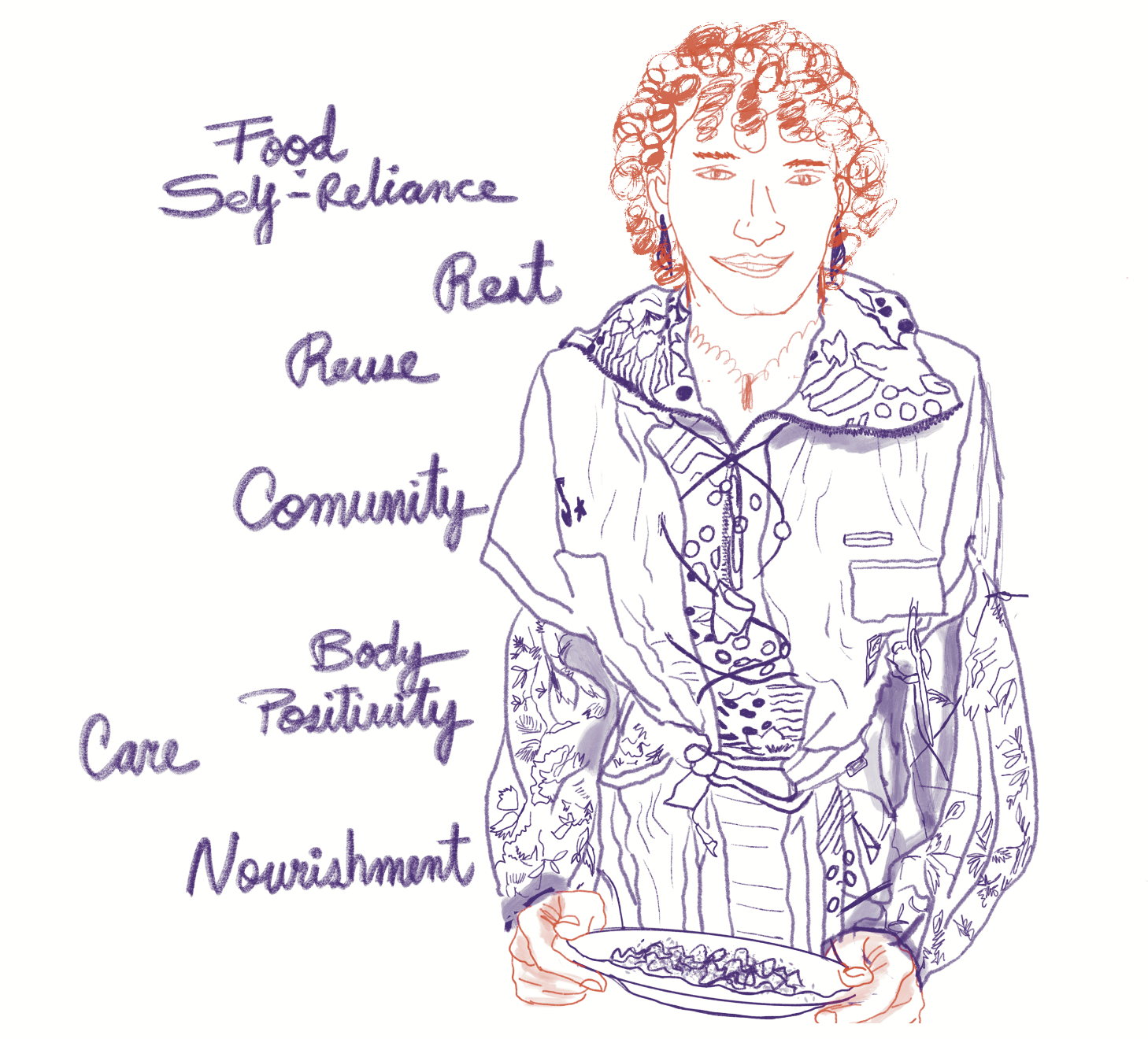
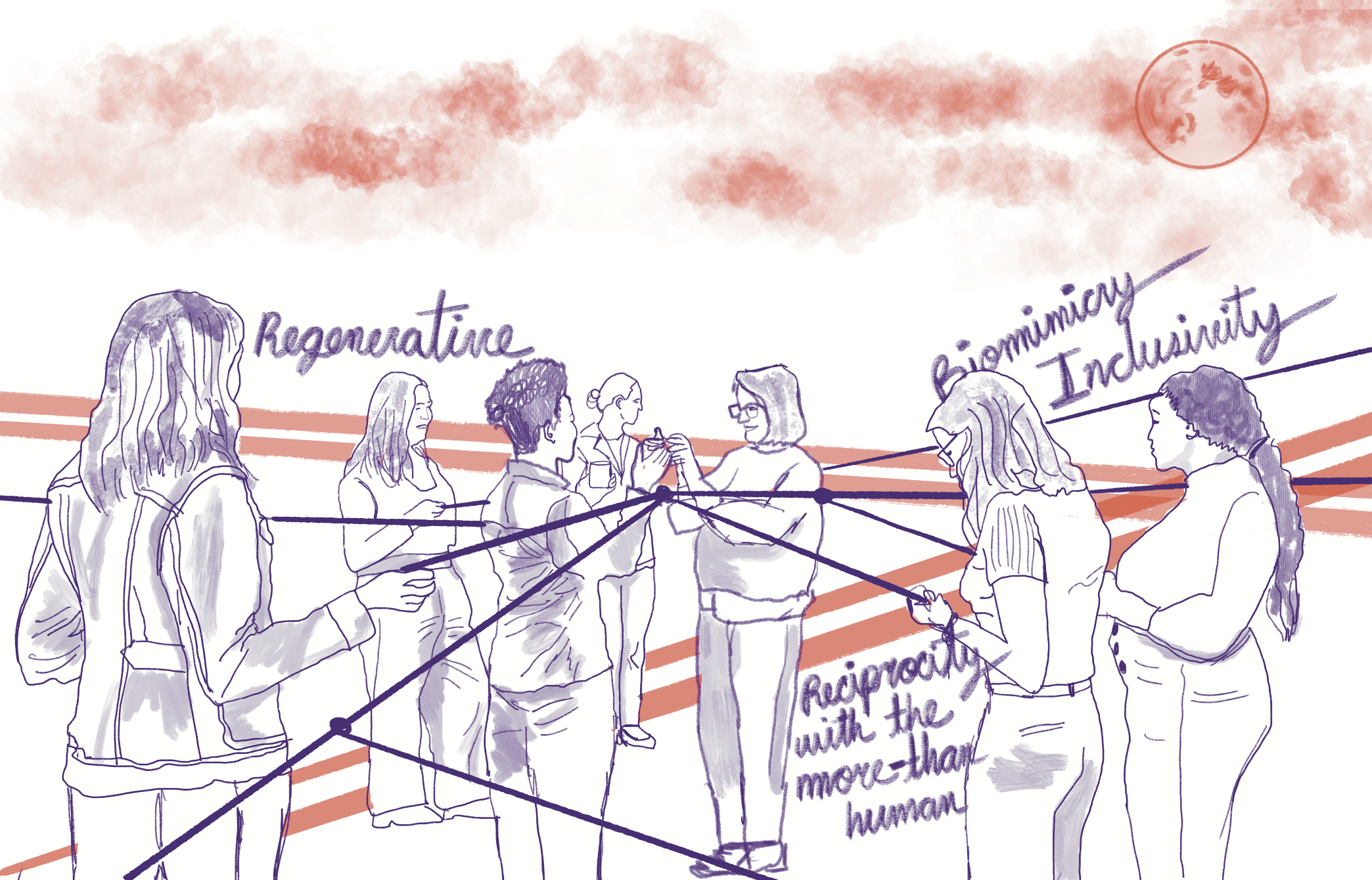
Alternative Imaginaries of 2053
Alternative Imaginaries of 2053 is an exhibition held at Parsons School of Design that gathers four different artifacts (One per each of the researchers part of this project) existing within an alternate, post-growth future of New York City in 2053. As researchers, artists, and designers, we wanted to reflect on our own learnings and the personal impact of our work together. From signal scanning, the Experiential Futures Ladder, and imagination games to science fiction world-building, each of us used different methods to arrive at different visions, probing into the material, political, relational, and more-than-human possibilities.
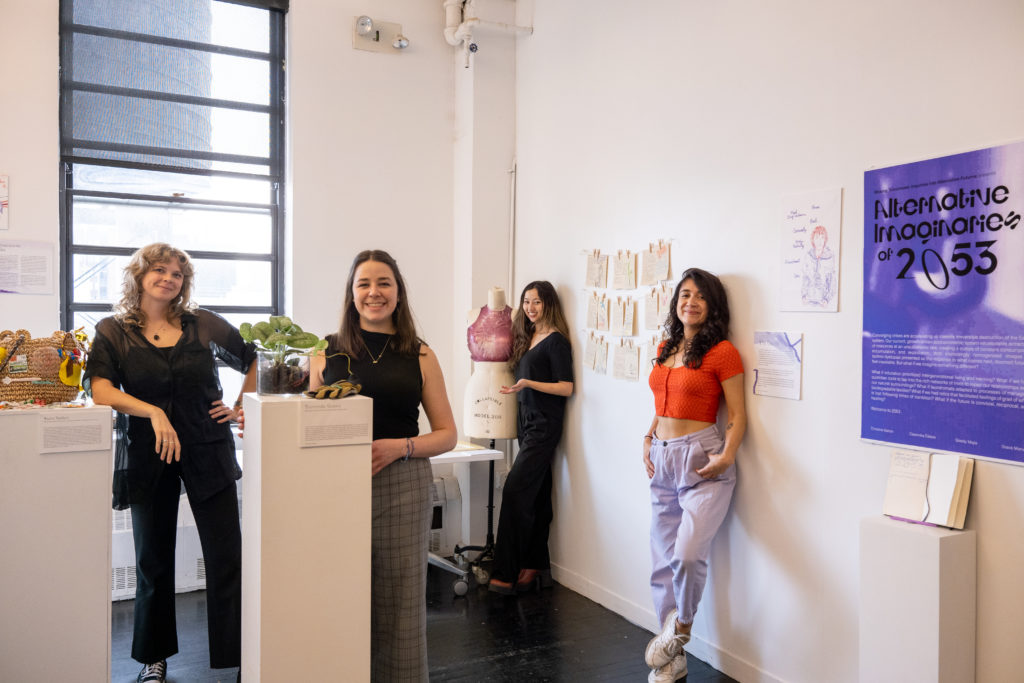
Exhibit description
Converging crises are accelerating us towards irreversible destruction of the Earth system. Our current, growth-driven socioeconomic system necessitates extraction of resources at an unsustainable rate, creating a culture of constant consumption, accumulation, and exploitation. With increasingly homogenized images of techno-dystopias presented as the response to what comes next, doomed futures feel inevitable. But what if we imagine something different?
What if education prioritized intergenerational living and learning? What if we had quotidian tools to tap into the rich networks of trees to repair our relationships with our natural surroundings? What if laundromats adapted to processes of managing biodegradable textiles? What if we had relics that facilitated feelings of grief of what is lost following times of transition? What if the future is convivial, reciprocal, and healing?
Welcome to 2053.
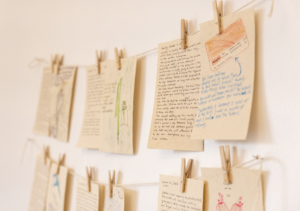
Intergenerational living and learning of 2053
This vision proposes a future where intergenerational learning is integrated into New York’s educational system as a way to engage a growing aging population in the exchange of knowledge and improve relational and emotional skills in younger generations.
Learn more about this speculative object
Projects details
Making Tomorrows: Inquiries into Alternative Futures was an 8-month design-led research thesis project for the MFA Transdisciplinary Design at Parsons. During this collaborative thesis, my colleagues and I engaged in individual experiments, conducted interviews, performed literature reviews, attended numerous events, iterated on the workshop methodology, did worldbuilding exercises, and used other futures methodologies which led to the final exhibition and presentation of our thesis project in May 2023.
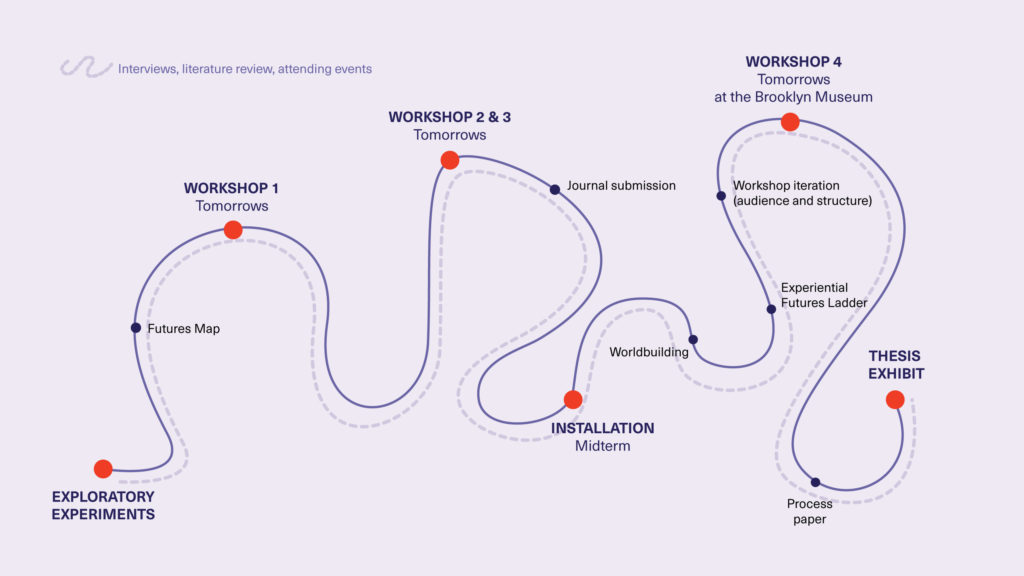
Initial lines of inquiry
What methods and frameworks can help us increase our imaginative capacities and how can we apply these methods to aid us in the transition towards a new paradigm where we live a more connected and sustainable life within planetary boundaries?
Experiential futures
- How might an experiential futures situation affect people’s perspectives towards the degrowth framework?
- How can this critical engagement with an alternative degrowth future help us reframe our relationship with our precious resources, even in a state of seemingly endless material abundance?
- How can we make degrowth tangible through the creative reuse of objects? How will people feel about it?
- How can we use design-led research to expand imagination and promote peoples’ agency towards a preferred future?
Object narratives
- How can engaging with the objects in our lives in a different way (creative reuse) help us dissolve the illusion of our separation from Earth, and our capitalistic drive to produce, consume, and accumulate to repair our relationships with the Earth and each other?
- What new narratives can be imagined around the creative reused objects in a degrowth future?
Aesthetics
- How do new object aesthetics impact people’s perceptions of degrowth?
- How can we make degrowth tangible through the creative reuse of objects?
Locating the project
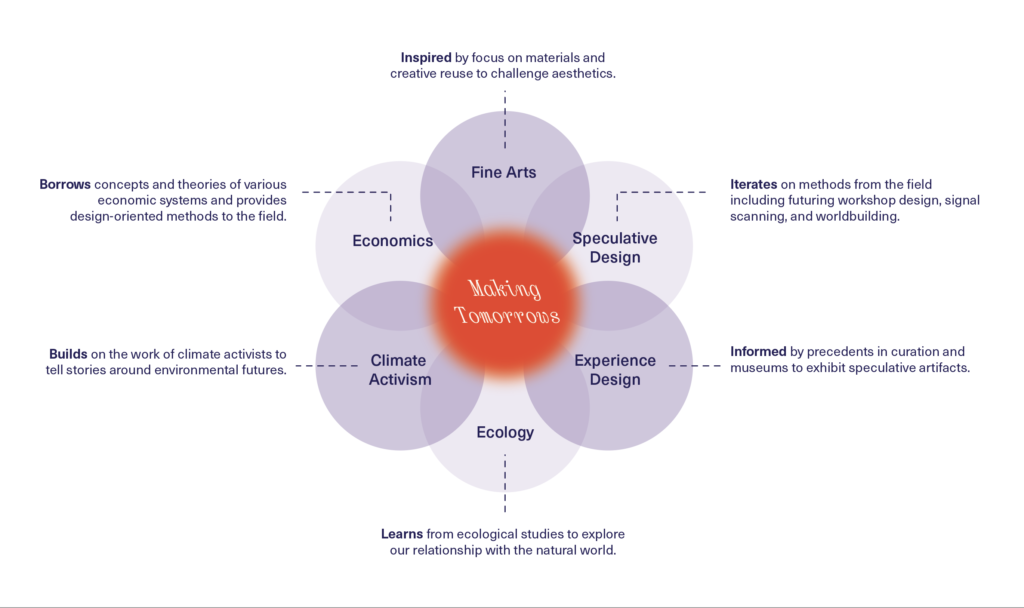
Worldbuilding and futuring methodologies
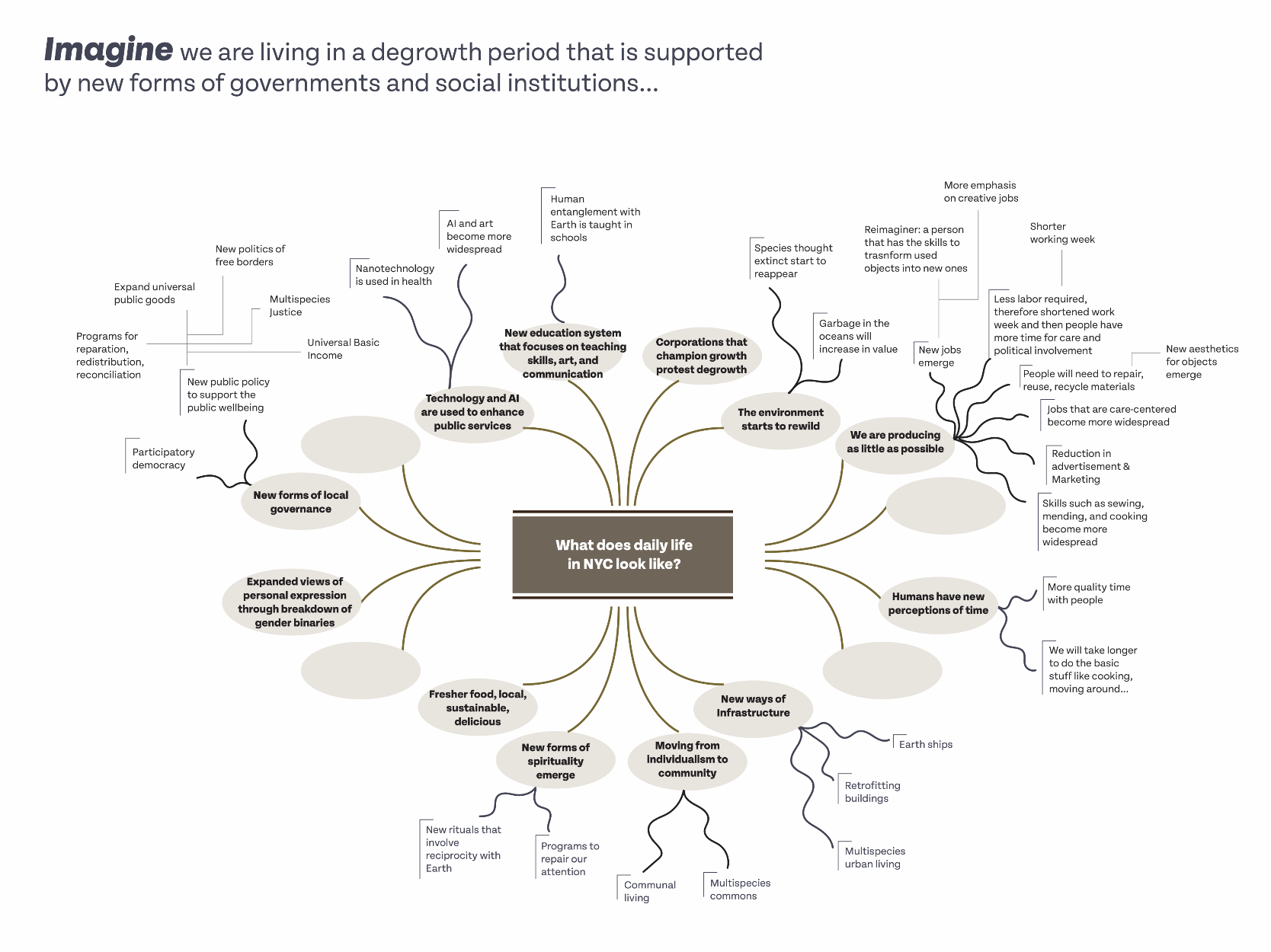
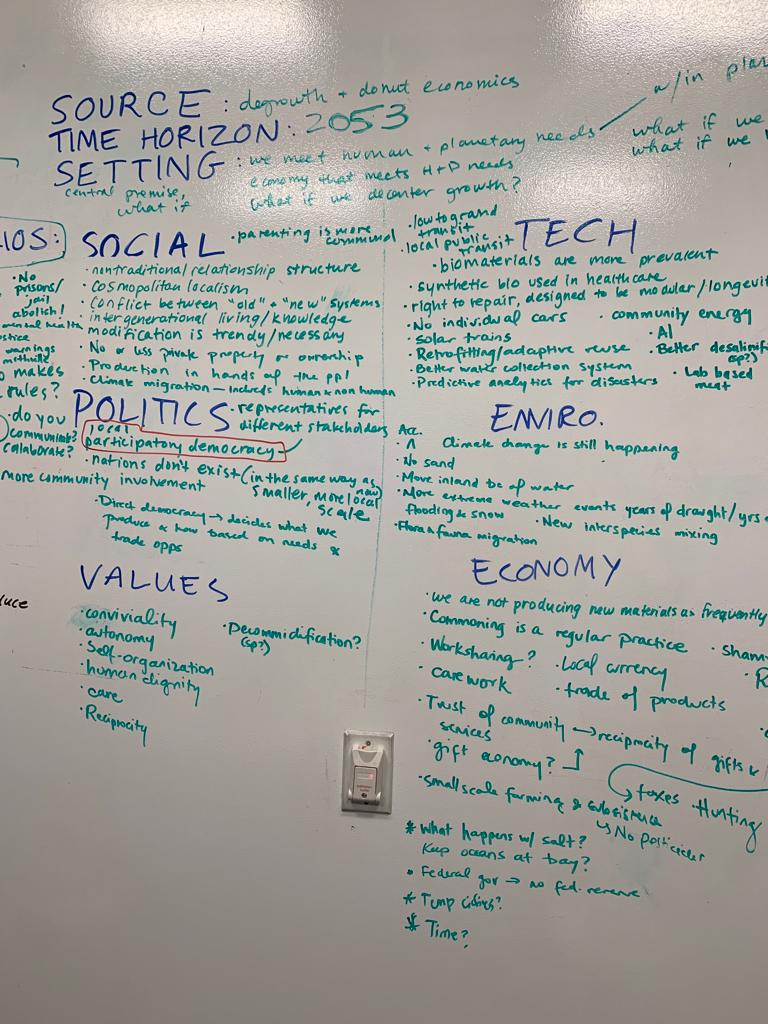
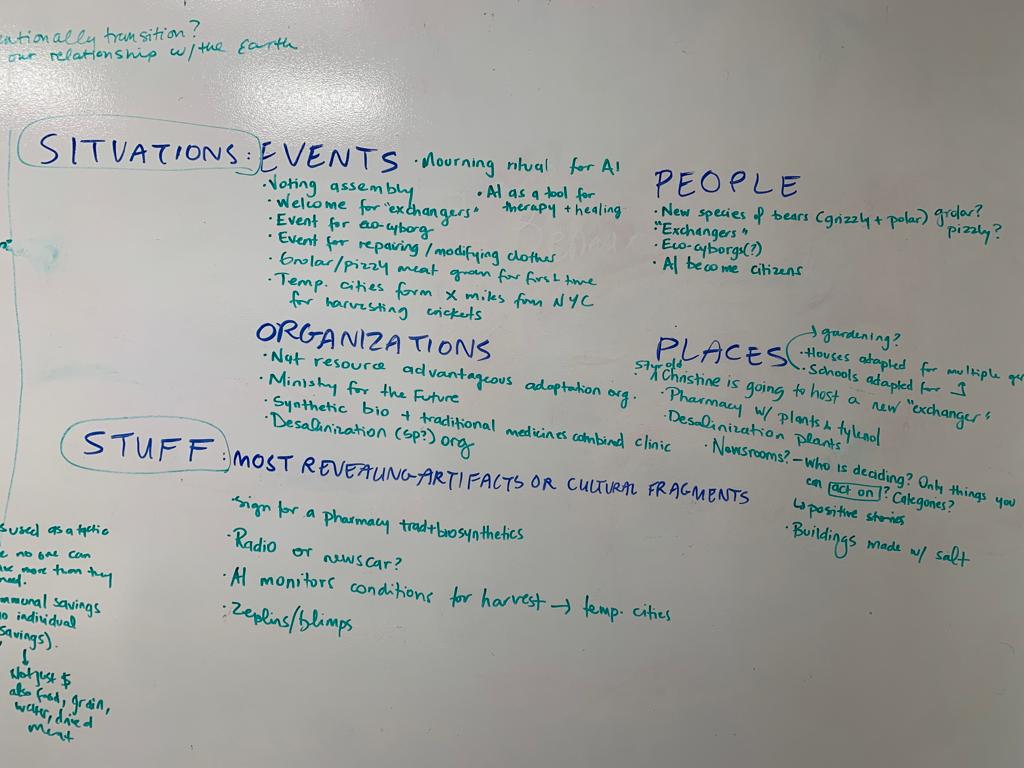
Workshops design and iteration
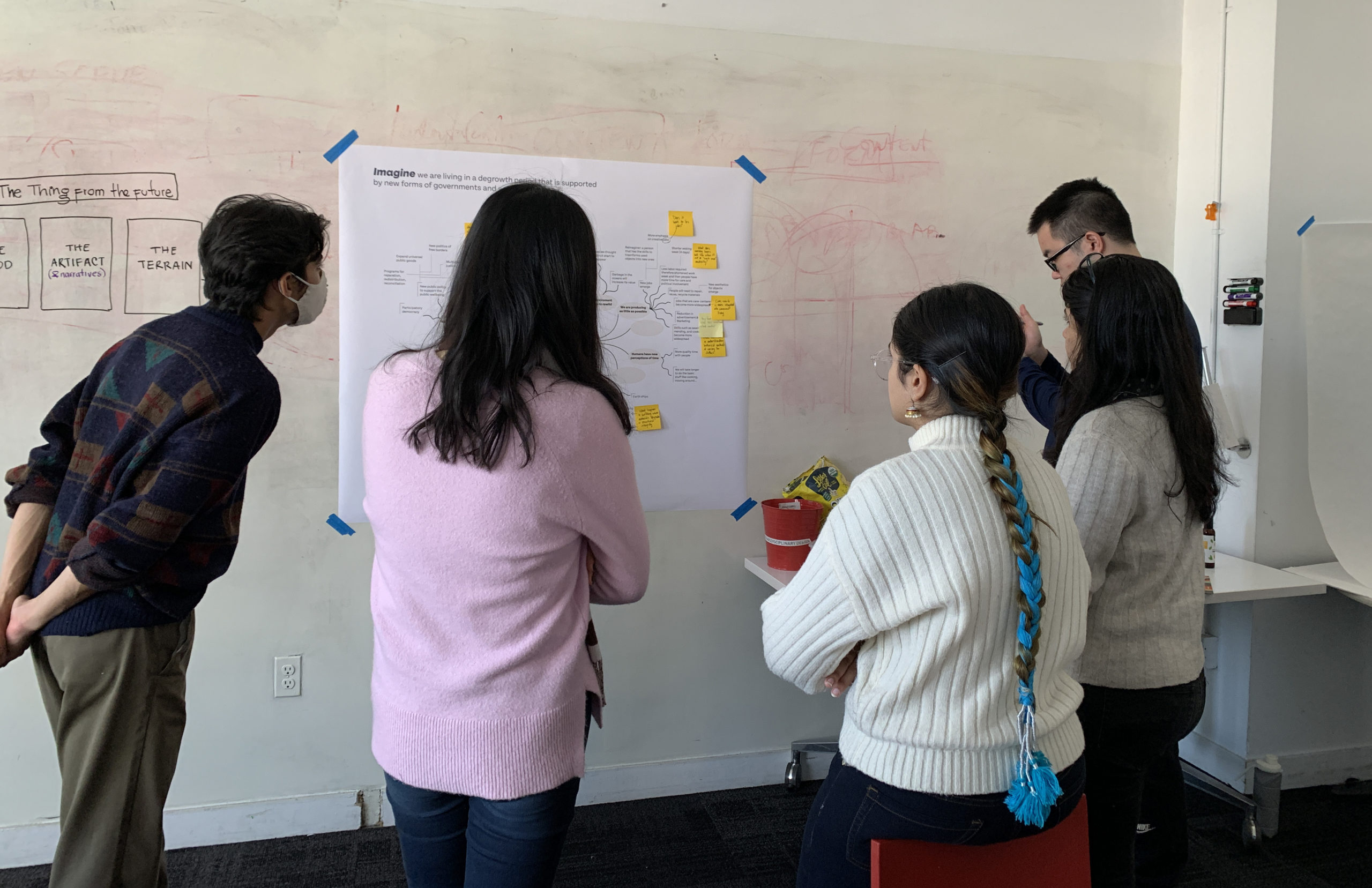
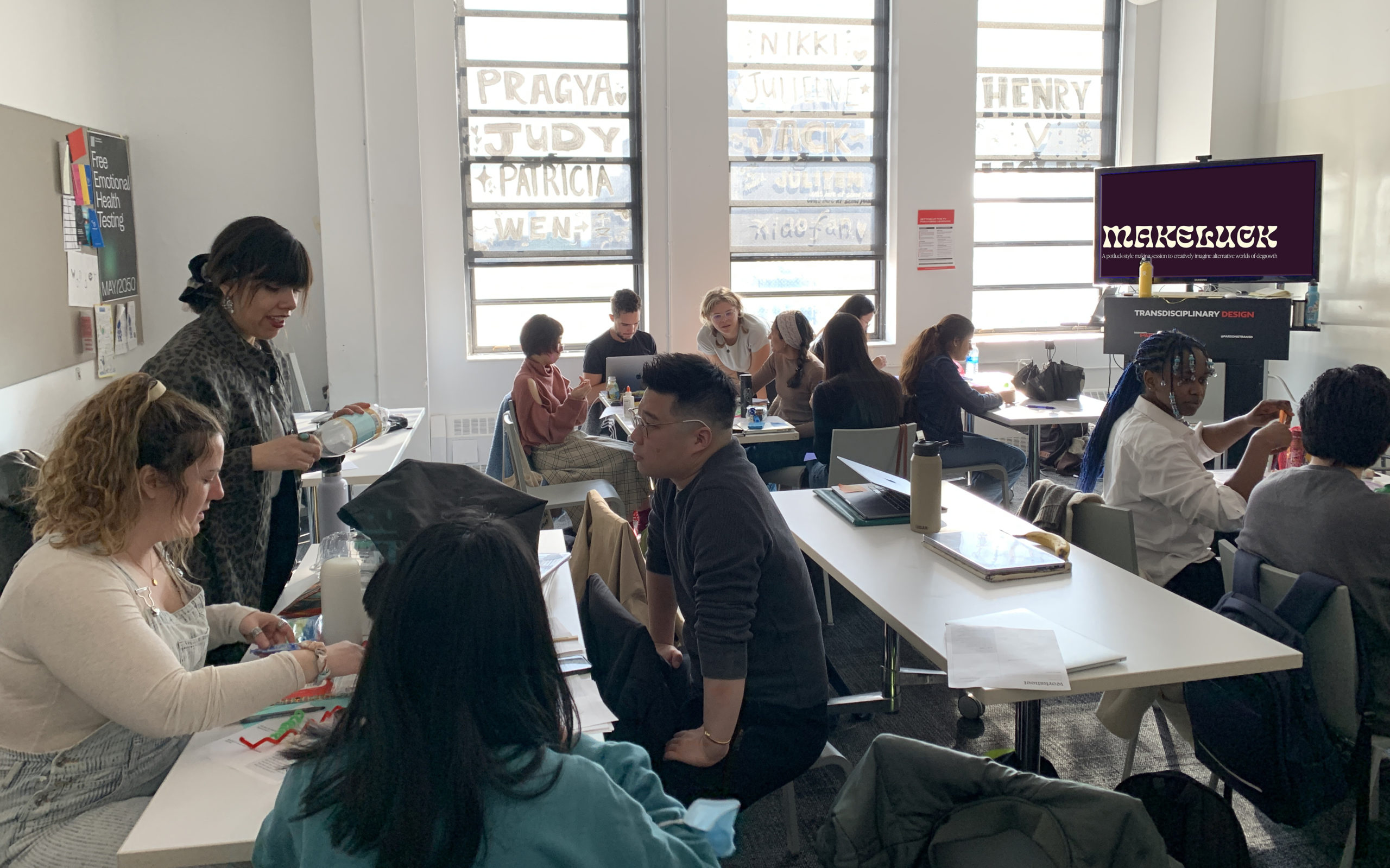
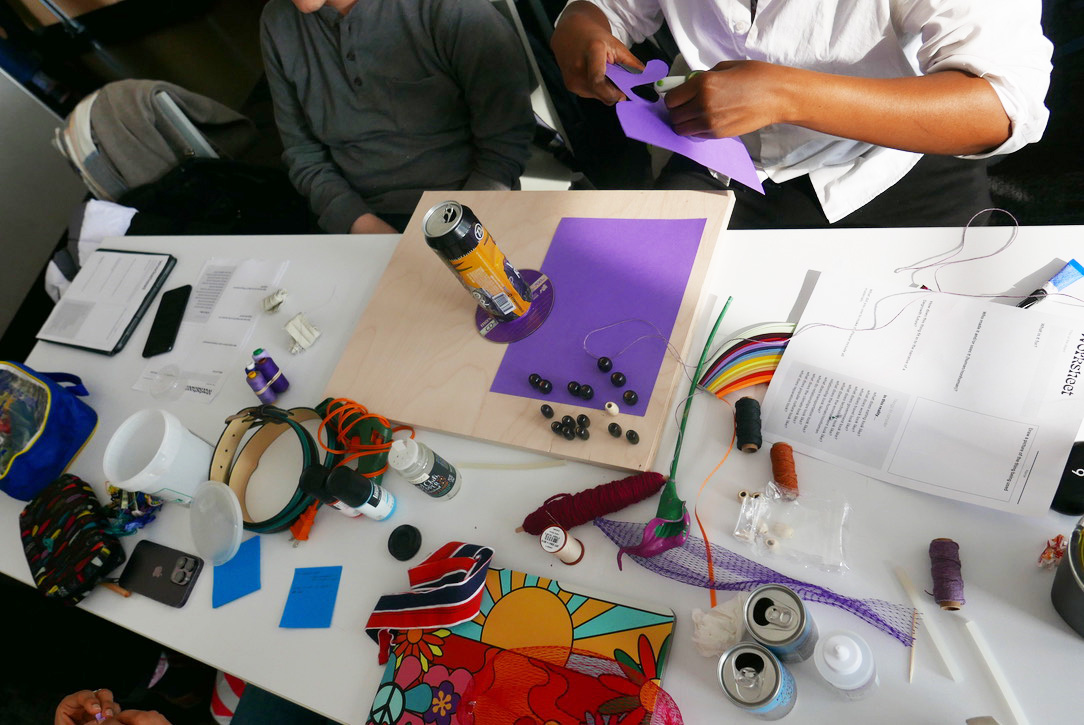
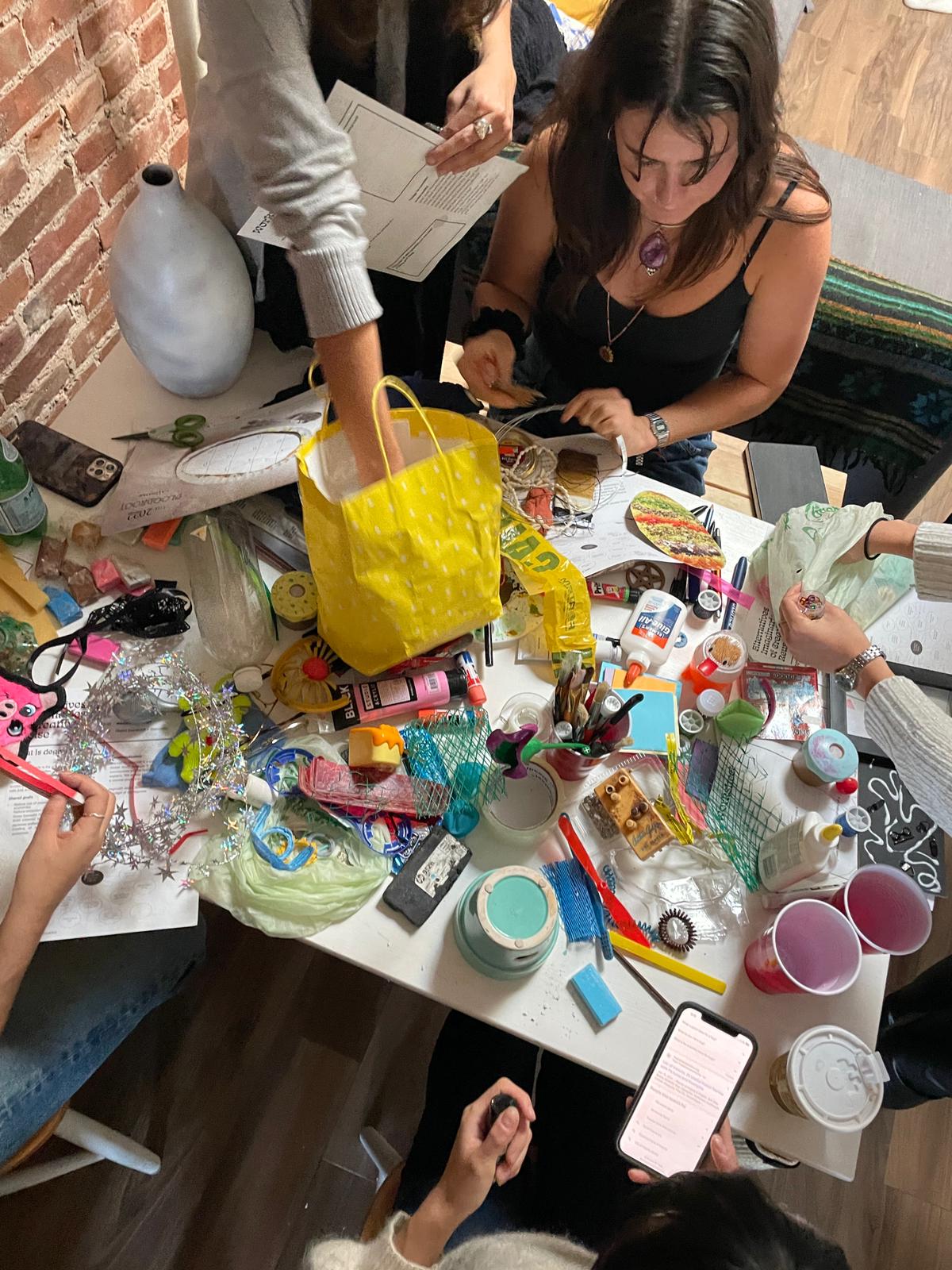
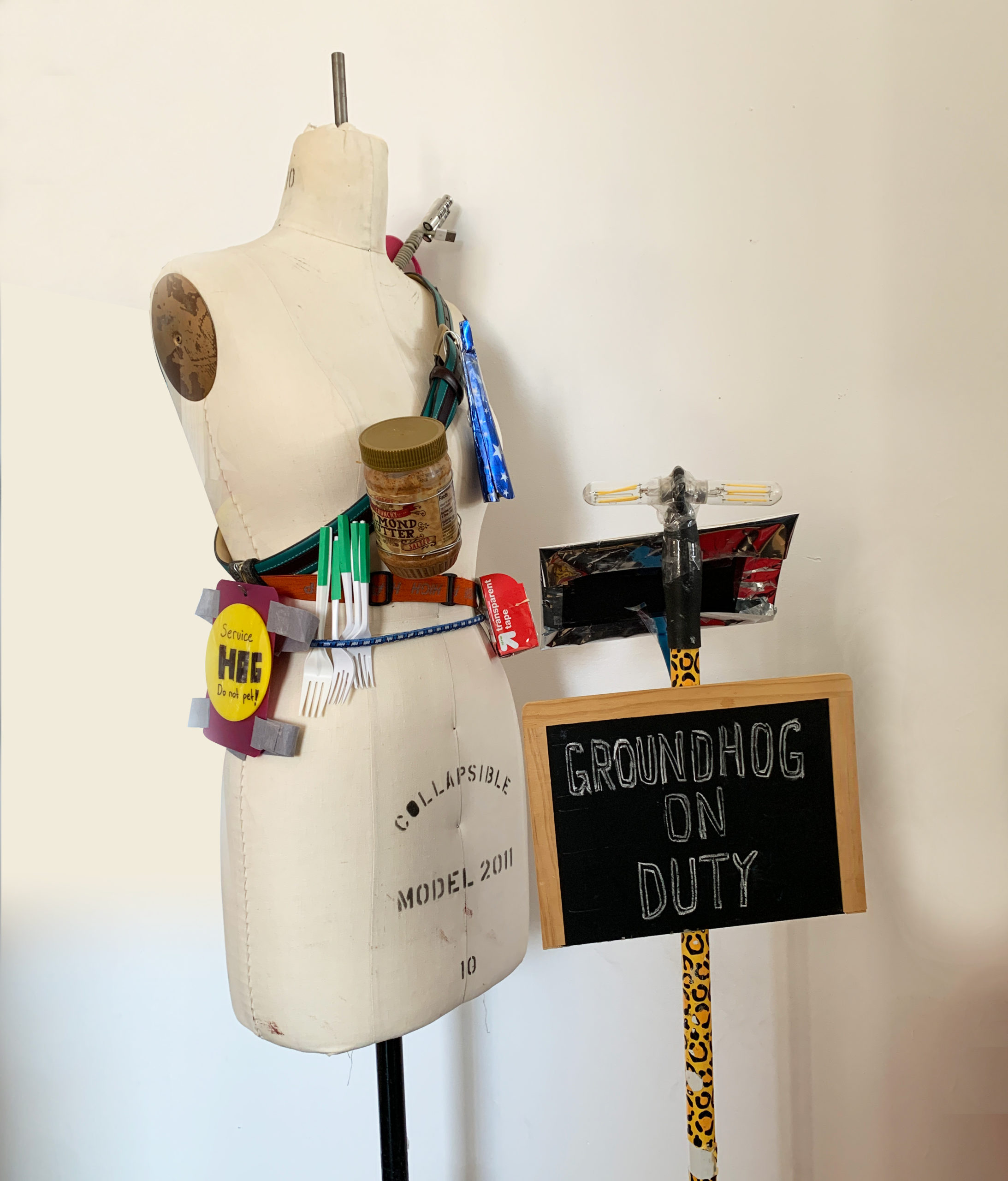
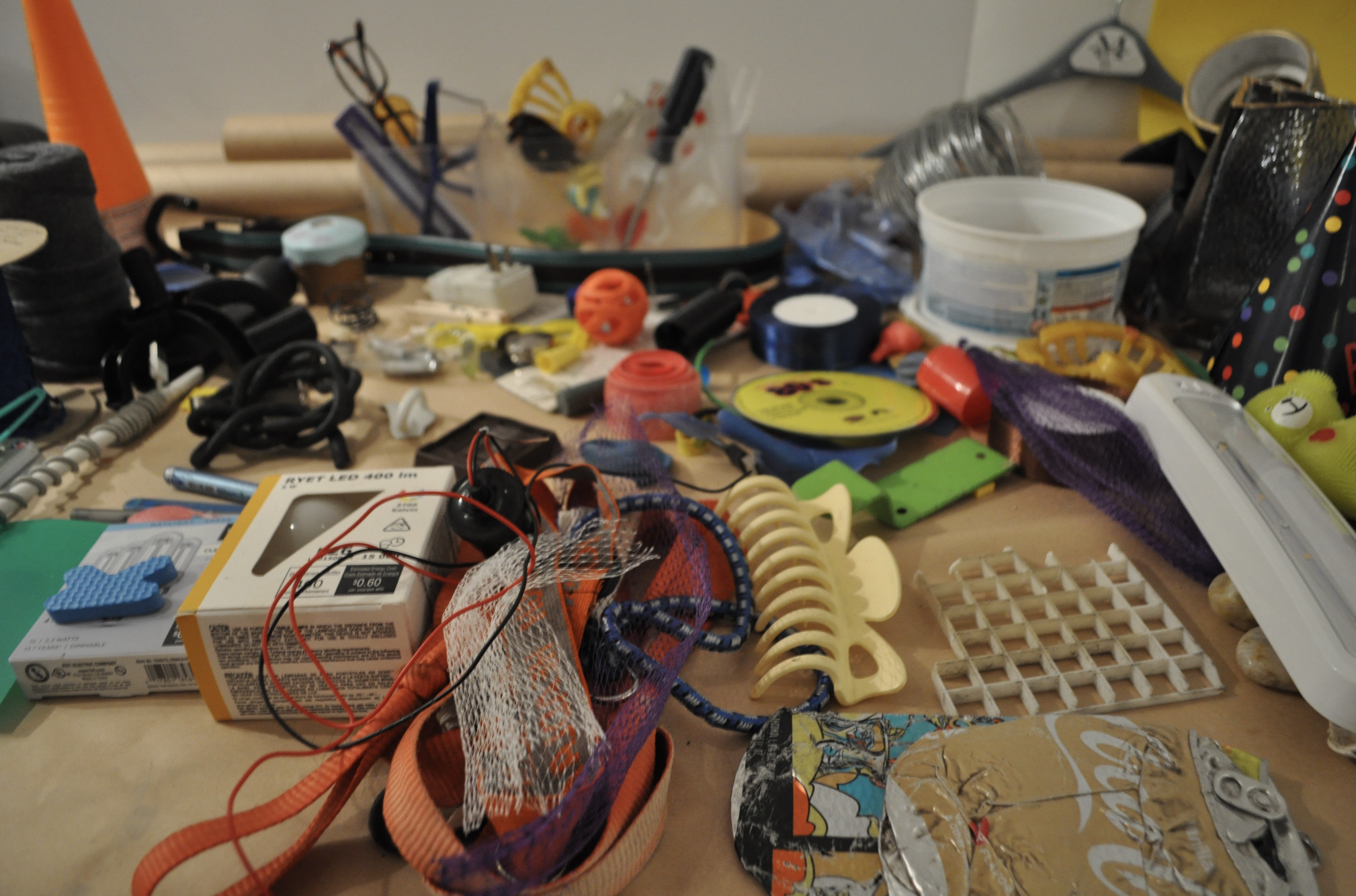
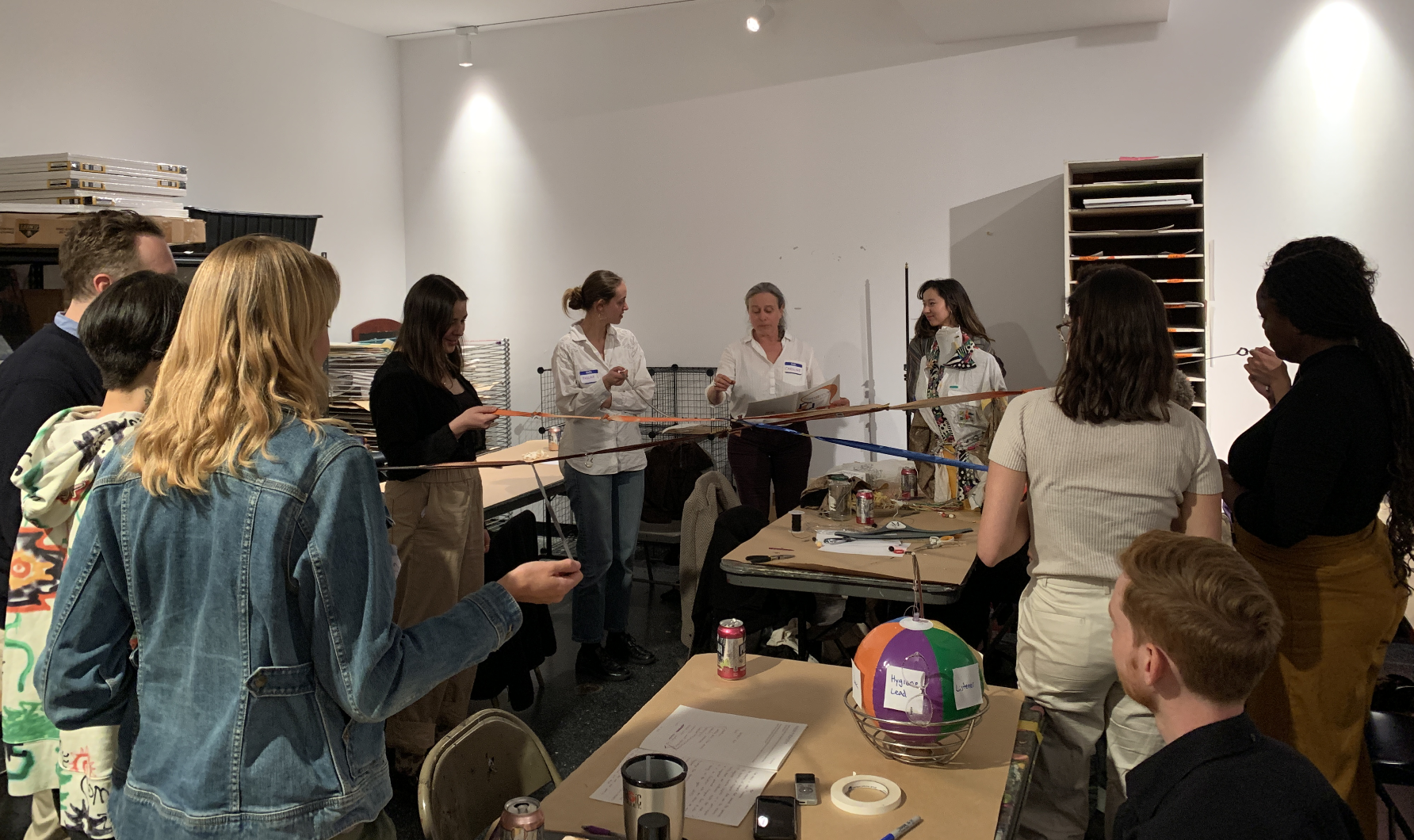
Data synthesis and analysis
